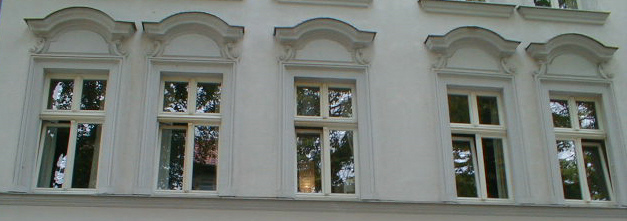Zeit und Ewigkeit / Time and Eternity / Le temps et l'éternité
Das Ewige ist das Einstige und zwar in dem wesenhaft-einigen Doppelsinn des vormalig-gewesenen Anfangs und des einstmals Kommenden. Nicht die Langeweile einer still gelegten und überallhin endlosen Gegenwart.
The eternal is the former (or: what "once was") and, to be precise, in the intrinsically united (or: the "essentially being one with itself") double meaning of the beginning that has previously been and of that which formerly was ("once was") to come. Not the boredom (or: "long enduring while") of some present rendered motionless (or: "laid to rest", or: "closed down") and endless in all directions.
L'éternel est le jadis (ce qu'il y avait une fois) et, précisément, dans le sens double essentiellement unifié du commencement qu'il y avait auparavant et de ce qui une fois était à venir. Non pas l'ennui (la durée longue, le perdurer) d'un présent figé et partout sans fin.
The Countess had decided to have no more transfusions; the strain provides her no benefit though her counts be low. The Countess is resting a lot, from pain medications and from the sapping of leukemia. The Countess is at peace and peaceful and nearing peace.
Time-Space is not endless, but eternal, not long, but vast, always beginning. And man is there to realize this, to be human, to share.
It was the Countess who taught me how to read.



And I'm going to win my battle, mama!
ReplyDeleteYes, I have won!
ReplyDelete